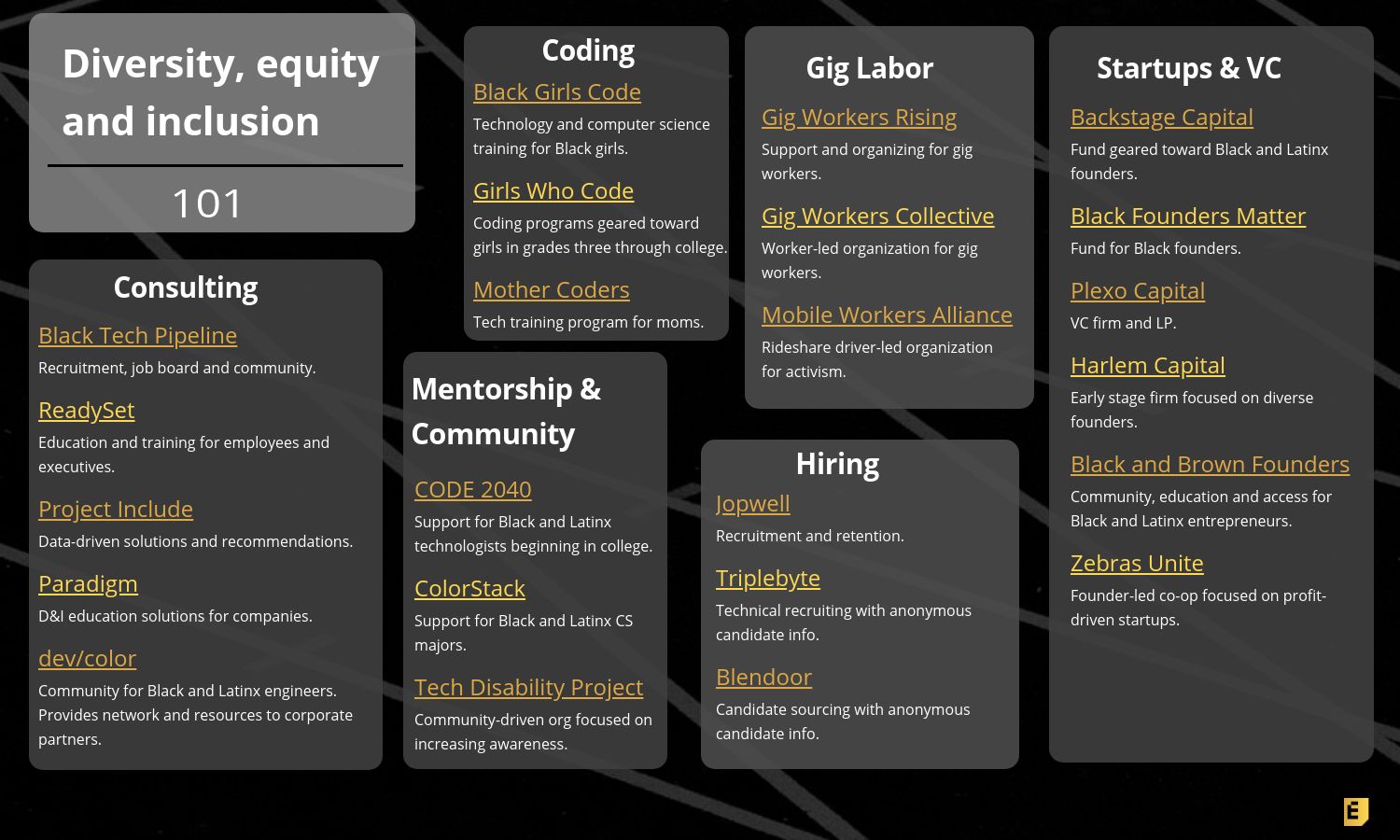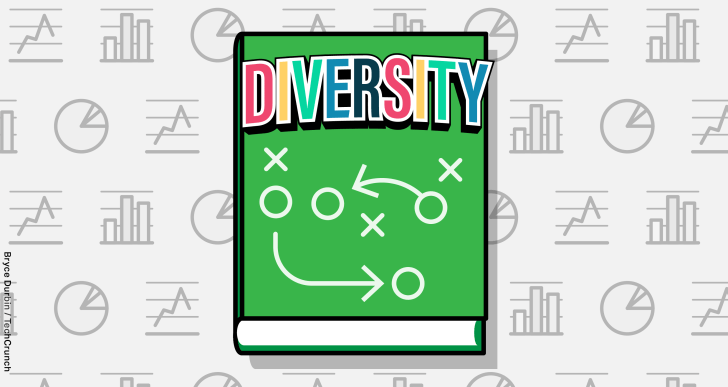After Minneapolis police killed George Floyd and the subsequent racial justice uprising, many people in tech shouted from the rooftops that “Black Lives Matter,” despite having subpar representation of Black and Latinx folks at their companies. In some cases, these companies’ proclamations of “Black Lives Matter” felt especially performative in contrast to their respective stances on Trump and selling their technology to law enforcement agencies.
Still, this has led to an increased focus on diversity, inclusion and equity in the tech industry. If you’re wondering things like, “Where do I find Black and brown talent?” or saying, “I’d invest in Black and Latinx people if I could find them!,” then this is for you.
Below, you’ll learn about some of the issues at play, some of the key organizations doing work in this space and access a glossary of frequently used terms in the realm of diversity, equity and inclusion in tech.
The data
- Major tech companies are predominantly white and male. Facebook, for example, is just 3.9% Black, 6.3% Latinx and 37% female.
- In 2018, female founders brought in just 2.2% of U.S. venture capital dollars.
- Less than 10% of decision-makers at VC firms in the U.S. are women.
- Companies in the top quartile for gender diversity on executive teams are 25% more likely to have above-average profitability than companies in the fourth quartile, according to McKinsey’s 2020 report.
- Companies in the top quartile for ethnic and cultural diversity outperform those in the fourth quartile by 36% in profitability, according to McKinsey.
- Latinx women make up less than 2% of women-led startups, according to Digital Undivided.
- Since 2009, Black women have only received .06% of all venture funding, according to Digital Undivided.
- Black women make 79 cents for every dollar white men earn in the tech industry, according to Hired.
Glossary of terms
Below, you’ll find a list of commonly used terms when talking about diversity, equity and inclusion.
- Ableism: Discrimination that favors able-bodied people.
- Accomplice: Someone who uses their privilege to actively advocate for change as it pertains to BIPOC, women, disabled people and so forth. An example of this is a white person who calls out racism in the workplace.
- Ally: A more passive version of an accomplice. An example of an ally is someone who supports the cause but may not put themselves on the line.
- Anti-racist: “To be antiracist is to think nothing is behaviorally wrong or right — inferior or superior — with any of the racial groups. Whenever the antiracist sees individuals behaving positively or negatively, the antiracist sees exactly that: individuals behaving positively or negatively, not representatives of whole races. To be antiracist is to deracialize behavior, to remove the tattooed stereotype from every racialized body.” – Ibram X. Kendi
- BIPOC: Black, Indigenous and people of color. This term is an alternative to simply saying “people of color,” which fails to recognize the unique experiences and hardships of Black (slavery) and Indigenous (genocide) folks in the U.S.
- Cisgender: Person whose gender matches their sex assigned at birth.
- Culture fit: Code for “looks like me, thinks like me,” which can lead to homogeneous workplaces.
- Diversity report: An oftentimes yearly report where tech companies show their employee demographic breakdown.
- Equality: Treating everyone the same, regardless of any structural barriers of discrimination.
- Equity: Treating people in fair and just ways that take into account systemic discrimination and other structural barriers.
- Gender nonconforming: People who identify with no specific gender.
- Imposter syndrome: When individuals doubt their worth and accomplishments and fear being exposed as a fraud.
- Intersectionality: The concept that people face multi-faceted layers of discrimination as a result of their intersecting identities relating to race, gender, class, sexual orientation, etc. For women and trans people of color, the oppressive institutions of racism, sexism, homophobia and transphobia all come into play and cannot be examined separately.
- Microaggression: Casual comments, behaviors or actions that are driven by underlying biases about a particular race, gender, sexuality or other characteristic. A classic example of this is telling a Black person, “You’re so articulate!” or, “You’re the whitest Black person I know!” The former suggests it’s rare for Black people to be articulate while the latter implies that Black person’s behavior doesn’t fit in with society’s stereotypical ideas of Blackness.
- Performative: Engaging in woke speak without taking action.
- Pipeline problem: A misconception that the lack of diversity in tech is a result of too few Black and Latinx people interested in technology.
- Transgender: Person whose gender identity does not match their sex assigned at birth.
- Unconscious bias: Also known as implicit biases, these are underlying beliefs people have about certain groups of people that are powered by stereotypes. Over the years, however, some have argued that these types of biases are not all that unconscious.
- White privilege: The benefits and advantages that people have simply for being white in society. More here.
- Woke: Aware of social justice and racial justice issues in society.
DE&I Landscape
Diversity, inclusion and equity do not just mean hiring and recruiting Black and brown folks. It touches on all aspects of the tech industry, including venture capital and the gig economy, where many of its workers are Black, Indigenous or people of color.
Common wisdom is that it’s better to start focusing on your startup’s diversity and inclusion efforts sooner rather than later. And by “sooner” we mean now.
Below, you’ll find an overview of the organizations active in this space. Whether you’re looking to beef up your recruiting efforts, implement unconscious bias or allyship trainings, seek mentorship, get funding or connect with other gig workers, there’s something here for you.

Image Credits: TechCrunch (opens in a new window)
This guide is not comprehensive but is designed to serve as a starting point for those not quite knowing where to begin. As for next steps, we recommend getting in touch with any of those organizations featured above that piqued your interest.
